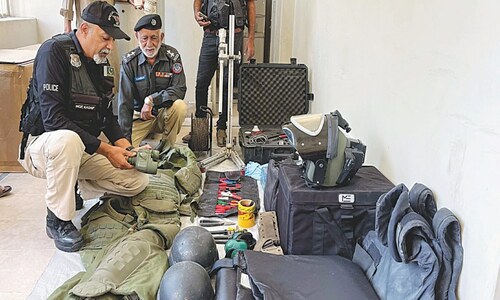KARACHI, Jan 24: Speakers at a seminar said that unrestrained hunting and destruction of natural habitat caused by pollution and population expansion as major factors contributing to the degeneration of marine and wildlife.
The seminar was organised by the Pakistan Press Foundation (PPF), Vicky Zeitlin Library, in Karachi on Thursday.
Conservator Sindh Wildlife Department (SWD), Munir Awan, said that this year the number of migratory birds that arrived in Sindh every year had come down considerably due to a number of reasons including the massive aerial movement and bombings in Afghanistan prior to start of the prime migratory season and shrinking of wetlands in the province during the past couple of years.
Expressing concern regarding wetlands in the province, he said that Haleji lake was intact only because it was the major source of potable water to Karachi.
Dr Ejaz Ahmed, Deputy Director General, WWF, said there were 11.2 % wildlife reserves lands, more than the international requirements of 4.2% , but the conditions were not conducive for natural habitat due to lack of enforcement of laws.
He said that WWF had more than 40 ongoing projects in Pakistan including mangroves projects in Somiani, Balochistan, and the Ibex project in Northern Areas.
Fehmida Firdous, Project Officer Marine Turtles Projects,SWD, said that no department had extended help to the Sindh wildlife department in protecting green and olive turtles.
She said Pakistan was ranked among the only eleven places in world where green turtles made their nests and the project at Sandspit was launched jointly by the SWD and the WWF in 1979. However it had been looked after by the SWD since 1983.
Tahir Qureshi of the IUCN informed that Pakistan had the largest arid climate mangroves forest in the world spread over an area of 600 hectors. However, growing deforestation, shortage of fresh water and pollution had caused a sharp decline in their number.
He said lions, tigers, one-horned rhinoceroses and Sambars (large deer) had vanished from Sindh and if appropriate measures were not undertaken the situation might get worse.
Tanvir Arif of SCOPE said that one of the best ways to conserve nature and prevent hunting was to develop eco-tourism. — PPI














































Dear visitor, the comments section is undergoing an overhaul and will return soon.